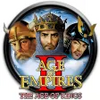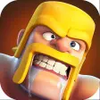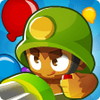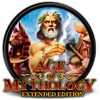Collection of fun, puzzle-oriented games designed to strengthen your memory, coordination and deduction
Collection of fun, puzzle-oriented games designed to strengthen your memory, coordination and deduction
Popular programs in Strategy
What is Purble Place
Purble Place packs three basic but fun games into a cute package perfect for younger players. None of these games are that different from alternatives you can find for free on your phone today - and it's starting to show its age graphically - but it occupies an interesting space in the history of casual gaming. And while it might be largely antiquated, there's still a lot of charm - and some simply excitement - to be had from the collection.
Graphically, Purble Place isn't exactly a powerhouse, but you can see it as a test drive for what would become a dominant aesthetic in mobile gaming. The characters and the environments are playful, colorful, and seemingly painted with a candy coated gloss. That said, none of them stick out enough to have become lasting icons, obviously. While there isn't anything in the way of a story here, the purbles themselves add some sense of personality to the experience. They feature in all three of the games as instructors and participants. But for the most part, they're just there - a requisite presence due to the lack of a compelling theme.
Of the three games included in Purble Place, Purble Pairs is the most basic. It's a simple spin on the card game Concentration. A deck of cards consisting solely of matching pairs is presented face down so the player can't see what's on the other side, and they need to take turns flipping over cards to find the matching pairs.
The results aren't exactly charting new territory, but the inclusion of various wrinkles to the formula do add a sense of surprise to the game. Bonus cards begin appearing in later stages and lend a new layer of complexity to the guessing game. They can have both positive and negative effects. Players can briefly see the other side of all the cards, automatically match a pair, or find yourself having to deal with a newly reshuffled deck. These aren't innovations that fundamentally change how we think about Concentration, but they do bring just a little more depth to the game.
Purble Shop is easily the most complicated game of the bunch - and while it's based off of the existing game of Mastermind, it's a compelling game and one that's less seen in digital spaces. It's also the one that requires the most sophisticated thinking and puzzle solving skills. You're asked to recreate a purble that you've never seen using only a list of possible colors, a list of articles of clothing they need to match to, and a number of responses to each of your guesses.
While brute force logic can sometimes win in this game, it's unlikely. Higher scores can be earned by thinking things through rationally. In most difficulty settings, you'll be told both when a body part has been accurately matched and when you've picked the right color but applied it to the wrong article of clothing. The potential for high level deduction is surprisingly deep, and it can get pretty tricky once you start to reach the higher difficulties. At advanced difficulty, there are over 3,000 combinations, so some level of deduction is necessary. Fortunately, beginning players can work with a more manageable 27 different combinations.
The formula used by Comfy Cakes may look familiar to you since it continues to be a formula used in countless mobile games today. You're tasked with running a cake bakery, and the cakes that you need to make will appear before you on a television screen. Complicating matters is the fact that each prospective cake comes down an assembly line, so it's important to be both quick and precise. As a cake passes each station, you'll have to pick the component that matches what's on the TV.
There are five different types of components to each cake. These include decorations like a flambe glaze applied by blowtorch and more run of the mill sprinkles. Players have to take into consideration color, shape, and three separate layers that often have their own icing and decorations. Things become significantly more complicated later in the game as you're forced to contend with multiple different cakes coming down the assembly line. It may not be as intellectually stimulating as Purble Shop, but it can give your multitasking and pattern recognition skills a real run for their money.
When Purble Place was first released, it was as a part of the standard Windows package. That put it in a long legacy of casual games dating back all the way to Windows Solitaire 1990. But it also came out right before the rise of the casual mobile game market. In just a few years, the same sort of experience that Purble Place offered could be had for free and conveniently accessible on your phone. But the game is still a fascinating look into the history of the industry and a nice change of pace for younger or casual players who are sick of games filled with ads and requests to pay real money for in-game incentives.
In fact, Purble Place gives you practically everything you need to tailor the game to your needs. While mobile alternatives make use of difficulty spikes intended to create artificial spikes and valleys, Purble Place gives you decent control over the difficulty. These are simple games at their core, and the presence of a few sliders for each game give you full control over the difficulty. There are also some default settings in place if you'd prefer not to have to tweak with it too much. It's a simple approach to game design, but it's an approach that emphasizes providing players with an experience that puts them in the driver's seat.
Pros:
- Three different games to choose from
- Surprisingly flexible difficulty adjustment
- Straightforward and accessible tutorials
Cons:
- Simplistic game design showing its age
- Art style is a little uninspired






